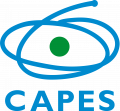LADC 2022 – 11th Latin-American Symposium on Dependable Computing
November 21-24, 2022
Fortaleza, CE – Brazil
The
Latin-American Symposium on Dependable Computing (LADC) is the major event on computer system dependability in Latin-America.
LADC’2022 will feature technical sessions, workshops, tutorials, fast abstracts, keynote talks from international experts in the area, and an industrial track. The symposium scope includes recent research results on software and system dependability. The Symposium is promoted by the
Special Committee on Fault-Tolerant Systems (CE-TF) of the
Brazilian Computer Society (SBC). LADC’2022 will be co-located with the XI Brazilian Symposium on Computing Systems Engineering (SBESC).
Prospective authors are invited to submit original research papers for presentation at the symposium in two categories: (1) full research (regular) papers, and (2) practical experience reports. Papers will be assessed with criteria appropriate to each category. LADC looks for works exploring new territory, continuing significant research, or reflecting on practical experience. While full research manuscripts should explore a specific technology problem and propose a complete solution to it, with extensive results, practical experience reports are expected to provide an in-depth exposition of practitioner experience and empirical studies.
All aspects of dependable and secure systems and networks are within the scope of LADC, including fault-tolerant architectures, protocols, and algorithms, models for performance and dependability evaluation, as well as, experimentation and assessment of dependable and secure systems and networks. Authors are invited to submit original papers on research and practice of creating, validating, deploying, and maintaining dependable and secure systems and networks.
Topics of Interest
- Fault-tolerant hardware architectures, multi-core systems, virtualization, nanoscale computers, hardware dependability assessment.
- Frameworks and software architectures for dependability, runtime monitoring, adaptation, model-driven dependability engineering, testing, verification & validation, software certification.
- Dependability of networks (LAN, WAN, mobile, ad-hoc, sensor networks, protocols, SDN).
- Dependability of large scale decentralized systems.
- Dependability of data storage and databases.
- Dependability and human issues, human-computer interaction, management of complex systems.
- Security foundations, policies, protocols, access control, intrusion detection, intrusion tolerance.
- Incidents & accidents, risk perception and analysis, safety-critical applications and systems.
- Critical infrastructure protection.
- Dependability and security modeling, measurement and benchmarking.
- Dependability of maintenance, tuning performance and availability, security configuration.
The proceedings of LADC 2022 will be published in the ACM International Conference Proceeding Series (ICPS) and indexed by the ACM Digital Library. A Best Paper Award is also a tradition in LADC and will be selected among the submitted works. Also, an extended version of selected papers will be published in a special issue of the
International Journal of Critical Computer-Based Systems.
Submission Guidelines
Papers must be written in English. All submissions are single-blind and will be reviewed by at least three program committee members. Research Papers and Practical Experience Reports should be no longer than 10 pages and 6 pages, respectively, using the
ACM sigconf template (double column, \documentclass[sigconf]{acmart} for LaTeX). The category of the paper should be clearly marked on the first page. Authors are requested to first register their submissions and then submit their manuscripts in PDF format at the
JEMS webpage. JEMS limits to a maximum of 8 authors per paper. Including more than 8 authors is allowed, but must be indicated to the TPC chairs after acceptance notification.
Important Dates
- Manuscript submission:
Aug 1, 2022 – Aug 22, 2022
- Notification of acceptance:
Sep 20, 2022 – Oct 5, 2022
- Camera-ready:
Oct 5, 2022 – Oct 21, 2022
- Symposium: Nov 21-24, 2022
Technical Program Committee
- Alysson Bessani (University of Lisbon – Faculty of Sciences, Portugal)
- Andrey Brito (Universidade Federal de Campina Grande – Brazil)
- Avelino Zorzo (PUC-RS, Brazil)
- Carlos A. Maziero (Federal University of Paraná, Brazil)
- Daniel Cason (Università della Svizzera italiana, Switzerland)
- Edson T. de Camargo (Universidade Tecnológica Federal do Paraná, Brazil)
- Elias Duarte Jr. (Federal University of Paraná, Brazil)
- Felicita Di Giandomenico (Institute of the National Research Council of Italy, Italy)
- Fernando Dotti (PUC-RS, Brazil)
- Fernando Pedone (Università della Svizzera italiana, Switzerland)
- Leonardo Montecchi (NTNU, Norway)
- Luciana Arantes (Sorbonne University LIP6/INRIA, France)
- Luiz F. Rust (INMETRO, Brazil)
- Luiz Rodrigues (UNIOESTE, Brazil)
Marcelo Pasin (HES-SO, Switzerland)
- Marco Vieira (U. Coimbra, Portugal)
- Miguel Correia (Universidade de Lisboa, Portugal)
- Nuno Neves (University of Lisbon, Portugal)
- Odorico Mendizabal (Universidade Federal de Santa Catarina, Brazil)
- Paulo Coelho (Universidade Federal de Uberlândia, Brazil)
- Raul Ceretta Nunes (Federal University of Santa Maria, Brazil)
- Regina Moraes (University of Campinas, Brazil)
- Roberto Palmieri (Lehigh University, United States)
- Rogério de Lemos (U. Kent, UK)
- Rui Oliveira (INESCTEC & U. Minho, Portugal)








